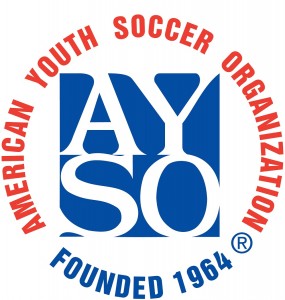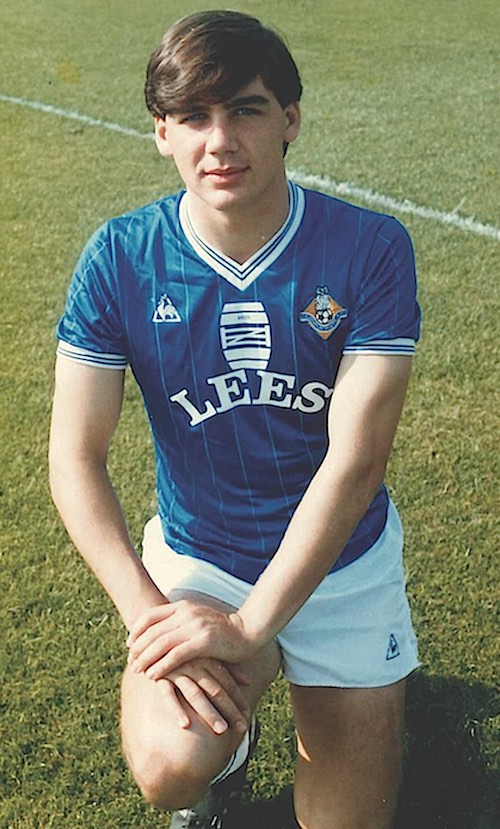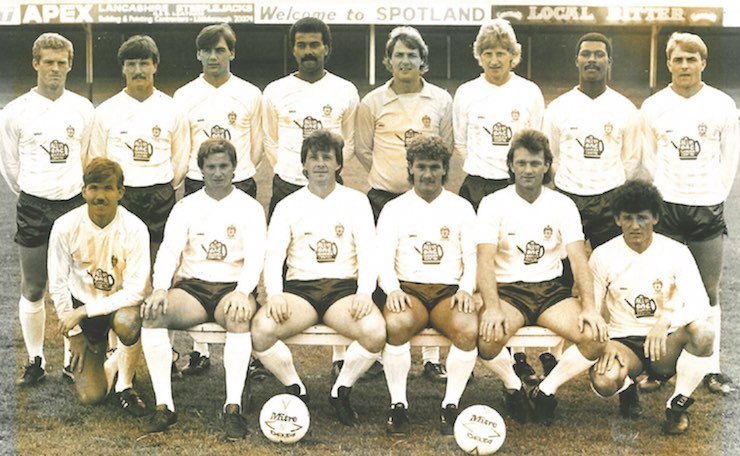Interview With New National Executive Director
 American Youth Soccer Organization’s (AYSO) National Executive Director, Ian McMahon came on board in October 2014. McMahon’s experiences with a soccer ball started when he was a young boy growing up in Manchester, England. “I was just one of those kids who would always run outside with a ball to play soccer,” says McMahon who was scouted as a schoolboy by Manchester City.
American Youth Soccer Organization’s (AYSO) National Executive Director, Ian McMahon came on board in October 2014. McMahon’s experiences with a soccer ball started when he was a young boy growing up in Manchester, England. “I was just one of those kids who would always run outside with a ball to play soccer,” says McMahon who was scouted as a schoolboy by Manchester City.
Thinking back to his youth, McMahon can easily recall the ‘old school’ style of street soccer — when he would go outside and there would be fifty kids playing soccer with twenty-five kids per side. “I never thought about if I would become a pro – I just played soccer – as much soccer as I could get and I loved the game,” says McMahon who never enjoyed what he calls the pretentious soccer scene at Manchester City or other big clubs.
Raised by a single parent, McMahon took pride in playing for his community before he received the tap on the shoulder from a Manchester City coach asking him to play for the storied English Premier League club. McMahon was young, only 11 or 12 years old at the time. Arsenal FC also wanted him as a youth player and his mom nearly closed the deal – and, while this would have thrilled many other soccer loving teenagers, McMahon’s immediate thought was, “London is a million miles away.”

Straight forward, witty and honest, McMahon is refreshingly humble when reflecting on his days as a soccer player. Never fazed by any of the offers from EPL clubs, McMahon says, “Any decent soccer player would have ten different teams after them.” McMahon would tryout for a different club every school holiday and also added Everton to the list of prestigious clubs who wanted him.
“In those days, players often got stuck in the reserves – I didn’t want to be in the reserves. I picked and chose my own pathway. I don’t want this to sound arrogant, but I wanted an opportunity to be on the first team sooner,” said McMahon who got his wish.
McMahon played professional soccer for his hometown club of Oldham Athletic, which was a mile from where he lived. “I could have signed for the bigger premier teams earlier but I transferred from Oldham to Rochdale FC – they offered more money, nearly three times the salary, so it was a logical step.”
By the age of twenty-one, McMahon had played over 100 games at Rochdale FC and was the captain of his team before agreeing to join Arsenal FC.
But fate played a cruel twist. McMahon was injured in a soccer match just two days before negotiations for Arsenal FC to buy his contract. McMahon had torn his meniscus in the match and what should have been a simple operation allowing him to be back on the field in six weeks turned into a life-changing event. McMahon knee had become infected while in the hospital and the injury ended his playing career.
Forced to retire while in his twenties, Ian McMahon became one of the youngest general manager/chief executives, ever of a professional sports team.
Today, McMahon has decades of experience as a CEO, president and GM in the world of soccer. McMahon even founded a youth soccer club in Holland, Michigan where he reached an agreement with MLS’ Chicago Fire to be their area youth program — so he is very familiar with the drive to develop youth players in America’s competitive landscape.

Why did McMahon choose to work with AYSO and what is his vision on youth soccer in America?
Diane Scavuzzo sat down to chat with him and get to know this man who has accomplished so much since his days as a youth soccer player in Manchester.
Diane Scavuzzo: Why join AYSO as CEO?
Ian McMahon: My passion is soccer and kids just playing the game of soccer. You know 99.9% of all youth soccer players do not become professional players and I believe soccer should be more about a kid with a smile on his or her face than trying to produce professional players and all the carnage that brings.
Diane Scavuzzo: How much do you believe youth soccer has turned into a business and the simple joy of playing the game suffers as a result?
Ian McMahon: Soccer in the last five years has changed and has become an even bigger business. The industry of youth soccer is losing sight of what it is all about. It is a vehicle for kids to enjoy the game of soccer.
Diane Scavuzzo: As the biggest youth soccer club in America, what do you believe is AYSO’s role in youth soccer today?
Ian McMahon: My role at AYSO is to make sure that soccer goes back to being a community-based sport. When kids have a positive experience in the game, they pass the love of soccer on.
Diane Scavuzzo: What happens when youth soccer players have a poor experience?
Ian McMahon: They will not be advocates for the game anymore – they will not buy the merchandise or come to the games either.
Diane Scavuzzo: When kids have a negative experience, is slows the growth of the game?
Ian McMahon: Yes – Our aim is to keep kids in the sport longer. Everything we do has to be in the best interest of the child.
Diane Scavuzzo: Do you think of yourself as competitive?
Ian McMahon: Of course, I want to win every game. I don’t know anyone more competitive than me.
Diane Scavuzzo: Do you think youth soccer has become too competitive?
Ian McMahon: It seems that everyone has a new way to teach soccer and the last I checked, it was still a game played with two teams and one ball.
Diane Scavuzzo: What do you think should change in American youth soccer?
Ian McMahon: There are flaws in the American soccer system. Too many people are focused on looking for the best little kid. Years ago, the best 9 year old was Freddy Adu, and this should be a warning for everyone.
One of the flaws in the American soccer system is that there is no player fee structure as in Europe.
Diane Scavuzzo: You are referring to youth soccer clubs and youth soccer coaches not being compensated for developing players…
Ian McMahon: Yes, and I wouldn’t having anyone keeping scores until after age 11. Also, there is also too much emphasis on kids playing soccer in the hopes of being awarded a college scholarship. Parents should save the $5K a year they pay towards youth soccer and put in the bank and earn the interest and get their kids to study hard.
At AYSO, soccer is not about the money, soccer is about giving kids a positive experience with team spirit and developing good citizens.
Diane Scavuzzo: What is the role of a youth soccer coach in the USA today?
Ian McMahon: The role of a coach is to be a positive influence on the child and to help them succeed on and off the field. If a coach does this, the child will enjoy soccer more and want to be at soccer practice.
The coach has so much influence – when a soccer player has a negative experience, we may loose that kid all together.
Diane Scavuzzo: How closely does AYSO work with US Soccer?
Ian McMahon: We are a member of US Soccer but Sunil Gulati and Dan Flynn are focused on their role to produce players to win world cups. At AYSO, we are focused on kids playing soccer at every level of play.






